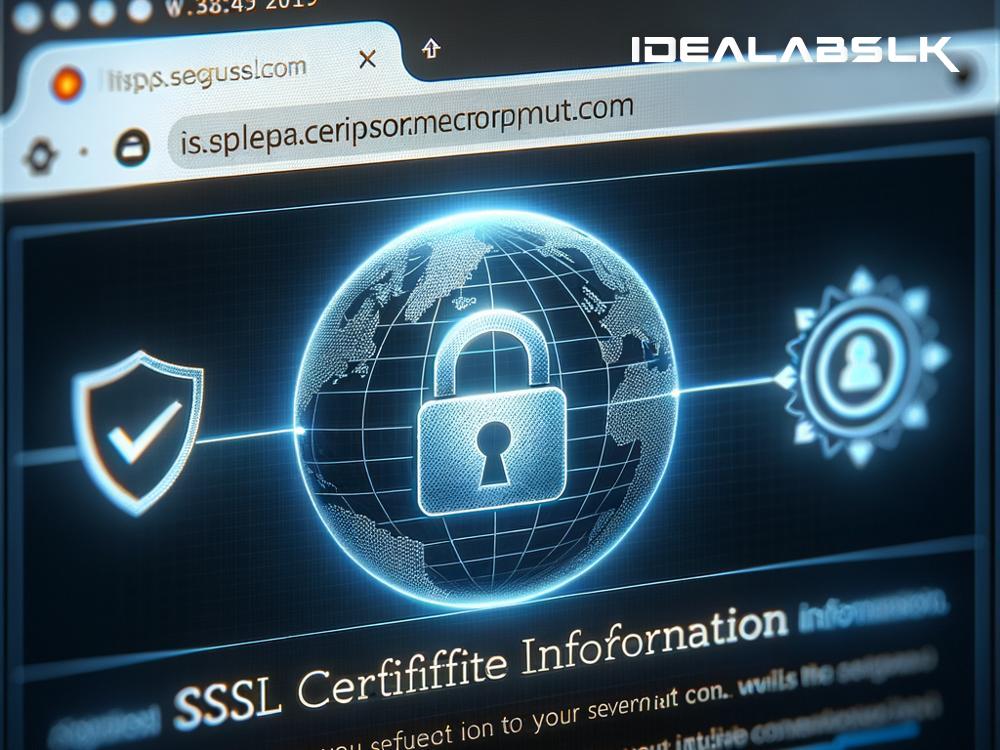Understanding SSL Certificates in Web Security: A Simple Guide
In the vast world of the internet where data is constantly being exchanged, how do you ensure the information you share over the web is safe and secure? This is where SSL certificates step in as the silent guardians of web security. Let’s break down this complex-sounding term into something you can understand without needing a degree in cyber security.
What is SSL?
SSL stands for Secure Sockets Layer. It might sound like tech jargon, but its role is simple yet crucial. It creates a secure channel between your web browser and the website you’re accessing. This ensures that all data transferred between you and the site is encrypted and kept away from prying eyes.
Think of it as having a confidential conversation in a noisy room by using a secret language. Even if someone overhears, they won’t understand what’s being said. That’s essentially what an SSL certificate does for online communication.
How Does SSL Work?
When you visit a website secured with SSL (evidenced by HTTPS in the web address and often a padlock icon), a process called the SSL handshake takes place. Here’s a simplified breakdown:
- Your browser requests a secure connection: It’s like knocking on a door and asking to come in.
- The website presents its SSL certificate: This is its way of proving its identity, similar to showing an ID card.
- Verification: Your browser checks the certificate to ensure it’s valid and issued by a trusted authority.
- Secure connection established: Once everything checks out, a secure connection is made using encryption keys that scramble the data being exchanged.
This process ensures that the information you send (like credit card details) is turned into a code that only the website can decrypt.
Why Are SSL Certificates Important?
- Privacy and Security: First and foremost, SSL protects sensitive information from hackers and identity thieves.
- Trust and Credibility: Sites with SSL show they care about your privacy, making you more likely to interact with them or shop from them.
- SEO Benefits: Search engines prioritize secure websites. Having an SSL certificate can help your site rank better.
- Compliance: Certain regulations require encrypted data to protect user information. SSL helps websites meet these standards.
Types of SSL Certificates
SSL certificates are not one-size-fits-all. They vary based on the level of validation and the number of domains they cover. Here’s a quick overview:
- Domain Validation (DV): The most basic level, it verifies that the applicant owns the domain. It’s quick to get and cost-effective, suitable for blogs and personal websites.
- Organization Validation (OV): Requires more rigorous checks, including the organization's legitimacy. It’s better for business websites that handle less sensitive info.
- Extended Validation (EV): The highest level of validation. Alongside domain and organization verification, it requires additional documents to prove the entity’s legal existence. It’s recommended for eCommerce sites and those handling sensitive data.
Setting Up SSL Certificates
Adding an SSL certificate to your website isn’t overly complicated. Most web hosting services offer easy SSL setup, sometimes even for free. The steps typically involve:
- Choosing the right SSL certificate for your site’s needs.
- Purchasing and activating the certificate through your hosting provider.
- Installing the certificate on your server, which can often be done with a few clicks.
- Updating your site to use HTTPS instead of HTTP, ensuring browsers recognize it’s secure.
After setting up, it’s crucial to maintain your SSL by keeping it updated and ensuring your site fully transitions to HTTPS, including all links and resources within it.
The Bottom Line
In an era where digital security threats loom large, having an SSL certificate is no longer optional; it’s a necessity. It’s the foundation of a secure internet environment, safeguarding both website owners and users from the risks of data breaches.
With this guide, we hope you’re now better equipped with the knowledge of what SSL certificates are, how they work, and why they’re essential in today’s digital world. Remember, a more secure web starts with taking that first step towards understanding and implementing the right protection for your online presence. Stay safe and secure!

